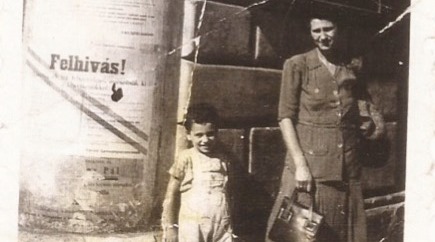
A lecture by Éva Kovacs (Vienna Wiesenthal Institute for Holocaust Studies) in the frame of the seminar on Modern Jewish History of the Institute of Contemporary History (AV ČR) and CEFRES in partnership with the Masaryk Institute (AV ČR).
Where: CEFRES library, Na Florenci 3, 110 00 Prague 1
When: from 5 pm to 6:30 pm
Language: English
In the past two decades, thanks to the opening of the digital collections in the United States, Israel, and Europe, the usage of oral history sources became attractive in historical research. These archives hold an enormous number of testimonies, which makes the research easier and faster, but, on the other hand, raises serious methodological questions. Meanwhile, the last survivors who can still give testimonies are passing away – the oral history sources are turning into „normal” archival sources soon. These new developments are challenging the history-writing on the Shoah.
Our case study deals with the everyday life of approximately 15 thousand Hungarian-Jewish deportees who were forced to work in Vienna and its vicinity in 1944-45. The presentation will focus on the Quellenkritik (source criticism) and methodology of using large oral history archives to explore insufficiently documented historical subjects.
Read more about the colloquia!
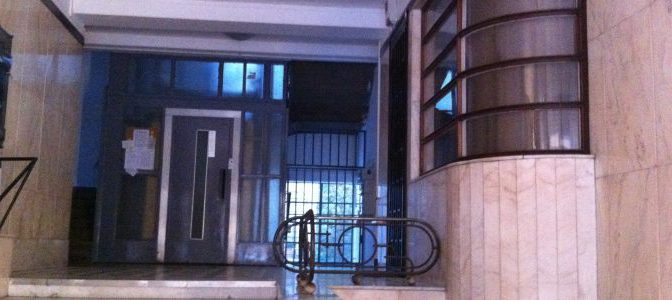
A lecture by István Pál Ádám (CEFRES) in the frame of the seminar on Modern Jewish History of the ÚSD AV ČR and CEFRES in partnership with the Jewish Museum.
Where: CEFRES library – Na Florenci 3, 110 00 Prague 1
When: 5 pm to 7 pm
Language: English
Abstract
During the Second World War, Budapest concierges (in Hungarian, házmester, in Czech, domovník) were a link between the authorities and most Jewish citizens living in the city. This role grew in importance, especially in summer 1944, when a dispersed Budapest ghetto was formed from some 2,000 individual apartment buildings. In his paper, István Pál Ádám seeks to explain the circumstances in which these concierges could acquire a good deal of assets by trying to help the persecuted Jews to survive.
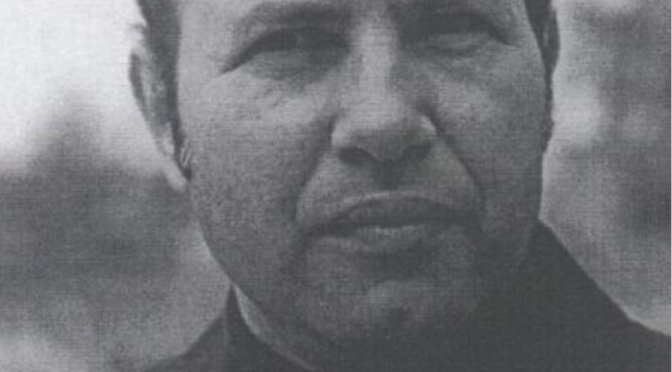
A lecture by Clara Royer (CEFRES) in the frame of the seminar on Modern Jewish History of the ÚSD AV ČR and CEFRES in partnership with the Jewish Museum.
Where: CEFRES library – Na Florenci 3, 110 00 Prague 1
When: 5 pm to 7 pm
Language: English
Abstract
To Imre Kertész, “Auschwitz” was the “Ecce homo” of two thousand years of European Christian culture. Such collapse of the so-called humanist culture led him to undertake a radical criticism of literature and of language. Analysing the totalitarian condition through his literary work, he strove to reconquer a free self through writing. Indeed, this existential practice enabled to become a creator, that is, to turn into the subject of his own creation. But how to create a work of art in such circumstances?
This lecture will try to cast some light on how Kertész strove to become “the Medium of Auschwitz” through a historical approach of the genesis of his literary work. It will appraise the historical and personal conditions of the birth of Kertész’s first published novel, Fatelessness.
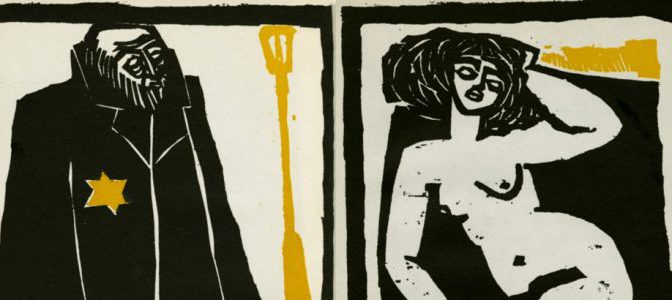
A lecture by Ilana Miller (University of Chicago) in the frame of the seminar on Modern Jewish History of the ÚSD AV ČR and CEFRES in partnership with the Jewish Museum.
Where: CEFRES library – Na Florenci 3, 110 00 Prague 1
When: 5 pm to 7 pm
Language: English
Abstract
Was there such a thing as “Jewish popular culture” under communism? In this presentation, I use data collected from the publishing and film industries to examine moments of increased popularity in Jewish themes in Czechoslovak culture. While the rapid rise in interest in Jewish themes in post-communist culture has been written about extensively, few have taken seriously the possibility of widespread interest in Jewish themes under communism. By examining trends in mainstream literary and cinematic culture, I show that the 1960’s boom in interest in Jewish themes rivalled the post-communist period. While the post-communist period was heavily influenced by foreign and external cultural trends, communist era literature and films were far more domestic—both in their creation as well as in their themes and focus. Using distribution and publication data, reviews, movie posters and illustrations, this presentation explores the characteristics and qualities of Jewish popular culture under communism, particularly the role that Jewish themes played during the era of communist reform.
Illustrations by Zdeněk Chotěnovský from Hana Bělohradská, Bez krásy, bez límce (1964).
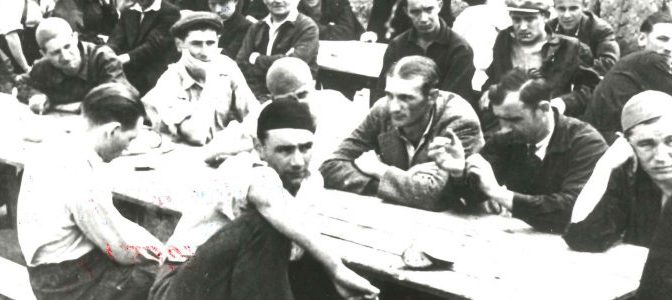
A lecture by Wolfgang Schellenbacher (University of Vienna / EHRI) in the frame of the seminar on Modern Jewish History of the Institute of Contemporary History (AV ČR) and CEFRES in partnership with the Jewish Museum
Where: CEFRES library – Na Florenci 3, 110 00 Prague 1
When: 5 pm to 7 pm
Language: English
The political exile of Austrian Socialists in Czechoslovakia in 1934 is different from other refugee movements in central Europe at that time, most noticeably because of the sympathetic approach of the Czechoslovak government towards those fleeing. In the later 1930s, however, the refugee policies of Czechoslovakia became distinctly more restrictive. By comparing the escape routes and fates of Austrians fleeing persecution for their political beliefs in 1934 with those of Austrians attempting to get into Czechoslovakia to escape anti-Jewish persecution in 1938, the new, anti-Jewish refugee policy of Prague becomes clear.
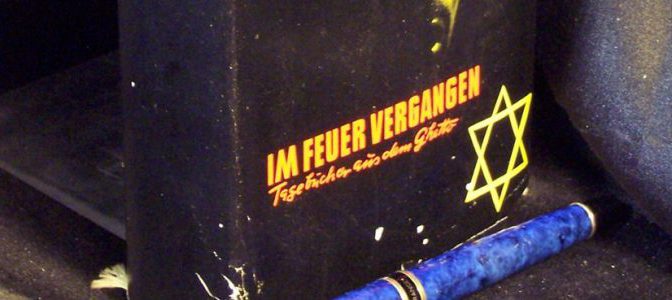
A lecture by Stephan Stach (Institute of Contemporary History, AV ČR) in the frame of the seminar on Modern Jewish History of the ÚSD AV ČR and CEFRES in partnership with the Jewish Museum.
Language: English
Abstract:
During the 1950s and 1960s a number of books on the Holocaust appeared in the German Democratic Republic. They had their origins in the Jewish Historical Institute in Warsaw, the only Holocaust research center in the Eastern Bloc. Among them was Bernard Mark’s Der Aufstand im Warschauer Ghetto (The Warsaw Ghetto Uprising, 1957; originally published in Polish in 1953), the collection of memoirs and diaries Im Feuer vergangen (Lost in the Fire, 1958) and the volume of documents Faschismus-Ghetto-Massenmord (Fascism, Ghetto, Mass Murder, 1960). These books constituted a considerable part of the literature on the Holocaust at the time. They were widely discussed in the press, where authors often used them as evidence of Nazi war criminals holding public office in West Germany at that time. Though their propaganda potential certainly increased the popularity of these publications, their impact went far beyond that. The publications were praised for their literary quality, for instance by the East German critics Victor Klemperer and Arnold Zweig, and met with the interest of the general reading public in East Germany. In my talk, I analyze the reception and perception of these books – and thus the Jewish Historical Institute – between Cold War propaganda and the emergence of an East German Holocaust memory.






